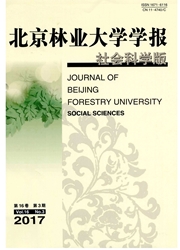

 中文摘要:
中文摘要:
通过对巴西军政府内地农业开发政策的研究,来探寻开发内地农业的原因,并对其特点和影响进行分析和探讨。军政府开发内地不仅出于农民对土地的渴求以及中央政府权利空前加强的缘故,也与当时的经济发展战略密不可分。内地垦殖和农村基础设施建设是内地农业开发的先导,同时政府还辅之以一系列支持政策和农业科技的推广。这一时期内地农业的开发有效促成了巴西经济的一体化,结束了历史上“两个巴西”并存的局面,有助于加强中央对地方的有效控制,奠定了巴西的农业大国地位以及今日巴西的农业格局。但同时也由于政策不当导致严重的生态破坏,在一定程度上加大了贫富分化差距,对巴西的经济和社会可持续发展造成不利影响。
 英文摘要:
英文摘要:
By studying the policies of inland agricultural development during Brazilian military government, the article explored the reasons of developing the inland agriculture, analyzed and discussed its characteristics and influences. The reasons that military government exploited the inland are not only duo to inland farmers' eagerness for land and the unprecedented strengthening power of the central government, but also inseparable from the economic development strategy of that time. Inland settlers and rural infrastructure construction were the forerunner of inland agricultural development. Concurrently, a series of support policies and the promotion of agricultural science and technology were also supplemented by the government. During this period, the inland agricultural development effectively contributed to the integration of the Brazilian economy, and ended the historic situation of coexistence of "two Brazilian", which was conducive to strengthen the effective control of the central goveinment to the local, and laid the status of Brazilian as a great agricultural country and contemporary Brazil's agricultural pattern. However, improper policy or inherent defects led to serious ecological destruction, which increased the gap between the rich and the poor, it is, to some extent, adverse for Brazil's sustainable development of economy and society.
 同期刊论文项目
同期刊论文项目
 同项目期刊论文
同项目期刊论文
 期刊信息
期刊信息
